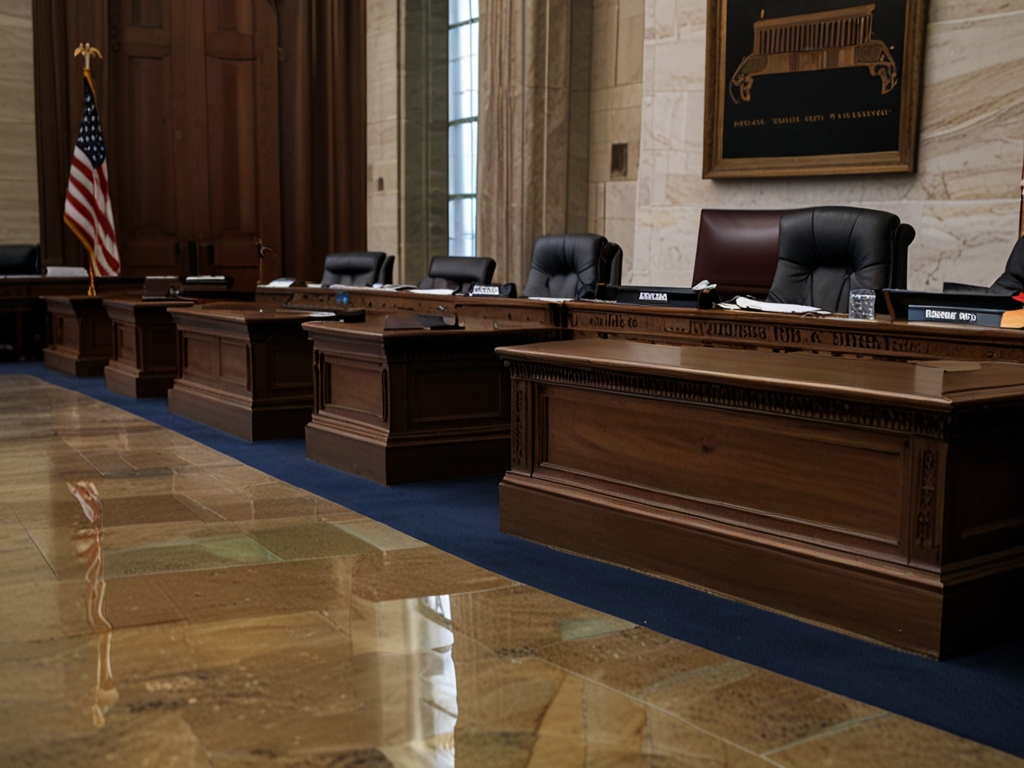






TOKENICATION_ is your reliable source for the latest news and analysis on cryptocurrencies. We provide up-to-date information on Bitcoin, Ethereum, and other digital currencies to keep you informed about the latest trends and help you make informed decisions.

Date: 2025-02-27 08:11:17
A contentious tax regulation put forth by the U.S. Internal Revenue Service (IRS), which mandates decentralized finance (DeFi) brokers to disclose cryptocurrency transactions, may be revoked as legislators work towards its repeal.
On February 26, the U.S. House Representatives took a step forward in the resolution to abolish the rule, with the House Ways and Means Committee casting a 26-16 vote in favor of the repeal. The resolution now proceeds to the entire House for a decision.
If it is approved, the Senate will then determine its outcome. A positive Senate vote would lead to the measure being presented to President Donald Trump, who can either approve it into law or veto it. If it is not revoked, the rule will become effective on January 1, 2027.
The "DeFi broker rule," proposed by the IRS in August 2023 and officially established in January 2024, would obligate certain DeFi operators, including front-end service providers for decentralized exchanges, to gather and report user transaction data, such as gross earnings from crypto sales.
In the view of the IRS, it would "level the playing field for taxpayers" by enforcing the same criteria as conventional financial institutions.
However, industry leaders have a different perspective. Opponents like Ways and Means Committee Chairman Jason Smith claim the rule is unfeasible for DeFi, where platforms often lack centralized control and intentionally do not gather user data.
Expressing his opinion on the development, Miller Whitehouse-Levine, CEO of the DeFi Education Fund, applauded the decision to repeal the rule, asserting that the rule embodies an "unlawful and unconstitutional overreach" that jeopardizes the financial privacy of Americans and impedes innovation in decentralized finance.
DeFi proponents have previously voiced concerns about privacy implications. Some worry that platforms like Uniswap may be compelled to gather user identities, which contradicts the fundamental principle of decentralized finance.
Read More: "Aleksei Andriunin, Gotbit founder, handed over to U.S. authorities"
Others, such as Consensys attorney Bill Hughes, perceive it as a last-ditch effort by the previous administration to suppress crypto before departing from office.
A day after the IRS finalized the rule on December 27, Kristin Smith, CEO of the Blockchain Association, labeled it "unconstitutional" and cautioned that it could drive crypto innovation overseas.
Texas Blockchain Council President Lee Bratcher shared this concern, stating that compliance is "virtually impossible" for many in the decentralized space.
The Blockchain Association, DeFi Education Fund, and Texas Blockchain Council have already initiated legal action against the IRS, alleging that the rule would compel DeFi developers to adhere to regulations they are unable to implement.
Despite the controversy, the IRS maintains its stance. In a joint statement with the Treasury, the agency dismissed arguments that DeFi should be exempt, stating, "Individuals with technology expertise that operate trades or businesses related to financial services should comply with the same rules as any other person operating financial services businesses."
Read More: "Post-Halving, Bitcoin Miners Relying on Grids Brace for Reckoning, According to MARA"